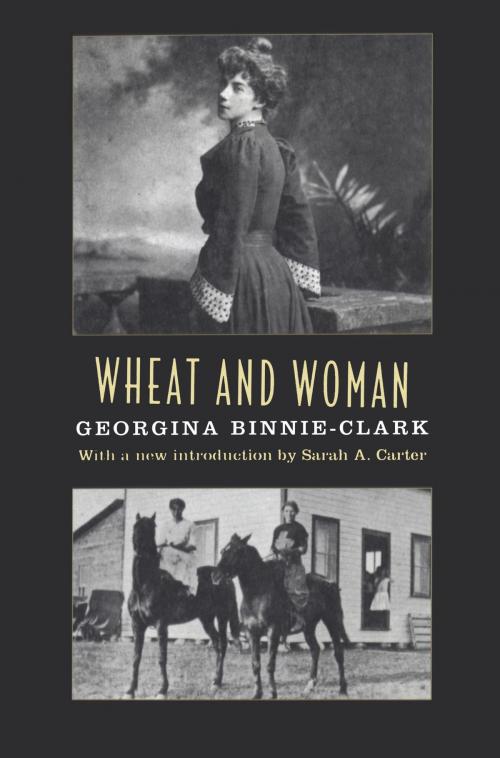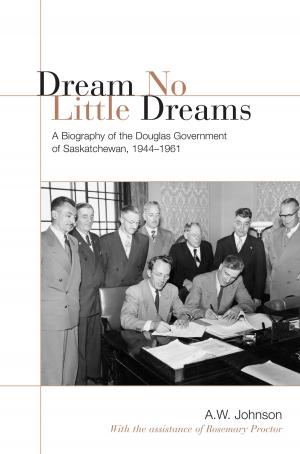| Author: | Georgina Binnie-Clark | ISBN: | 9781442655218 |
| Publisher: | University of Toronto Press, Scholarly Publishing Division | Publication: | December 15, 2006 |
| Imprint: | Language: | English |
| Author: | Georgina Binnie-Clark |
| ISBN: | 9781442655218 |
| Publisher: | University of Toronto Press, Scholarly Publishing Division |
| Publication: | December 15, 2006 |
| Imprint: | |
| Language: | English |
An established writer before she came to Canada, Georgina Binnie-Clark (1871-1947) settled in Saskatchewan in 1905 to become a farmer. It was an unlikely ambition for a woman in her day, particularly an English gentlewoman, and in the opinion of many, an impossible one. The reaction of onlookers was unhesitatingly and unqualifiedly unsupportive. Binnie-Clark, however, proved their skepticism to be unfounded.
Originally published in 1914, Wheat and Woman is an autobiographical account of Georgina Binnie-Clark's first three years on the prairies, the story of how she learned to define and deal with her anomalous position in pre-war prairie society. Although Binnie-Clark does not dismiss the difficult lessons of life on the land for an 'English greenhorn,' or the loneliness of a woman pursuing what was considered to be a man's job, she emphasizes the unique opportunities for women in Canada. If life was difficult in Canada, it was impossible, for some, in England. With a surplus population of more than a million women, most stood almost no statistical chance of finding a husband in England. The gentlewomen among them were barred by class from all but a few overcrowded and underpaid occupations.
Wheat and Woman also illuminates the sexual politics of settlement. Binnie-Clark was only too familiar with the limitations that Canadian law placed on women. Among women of the prairies, chief among these was the homestead law, which excluded all but a handful of women from the right to claim a free farm from the Dominion's public lands. This new reprint of Binnie-Clark's autobiographical writing includes an introduction by Susan Jackel, written for a 1979 edition of the text, as well as a new scholarly introduction by historian Sarah A. Carter, who received a Killam Fellowship for the study of Great Plains women of Canada and the United States.
Wheat and Woman is a fascinating record of a gifted and determined woman's experience in prairie farming and a unique document in Canadian social history.
An established writer before she came to Canada, Georgina Binnie-Clark (1871-1947) settled in Saskatchewan in 1905 to become a farmer. It was an unlikely ambition for a woman in her day, particularly an English gentlewoman, and in the opinion of many, an impossible one. The reaction of onlookers was unhesitatingly and unqualifiedly unsupportive. Binnie-Clark, however, proved their skepticism to be unfounded.
Originally published in 1914, Wheat and Woman is an autobiographical account of Georgina Binnie-Clark's first three years on the prairies, the story of how she learned to define and deal with her anomalous position in pre-war prairie society. Although Binnie-Clark does not dismiss the difficult lessons of life on the land for an 'English greenhorn,' or the loneliness of a woman pursuing what was considered to be a man's job, she emphasizes the unique opportunities for women in Canada. If life was difficult in Canada, it was impossible, for some, in England. With a surplus population of more than a million women, most stood almost no statistical chance of finding a husband in England. The gentlewomen among them were barred by class from all but a few overcrowded and underpaid occupations.
Wheat and Woman also illuminates the sexual politics of settlement. Binnie-Clark was only too familiar with the limitations that Canadian law placed on women. Among women of the prairies, chief among these was the homestead law, which excluded all but a handful of women from the right to claim a free farm from the Dominion's public lands. This new reprint of Binnie-Clark's autobiographical writing includes an introduction by Susan Jackel, written for a 1979 edition of the text, as well as a new scholarly introduction by historian Sarah A. Carter, who received a Killam Fellowship for the study of Great Plains women of Canada and the United States.
Wheat and Woman is a fascinating record of a gifted and determined woman's experience in prairie farming and a unique document in Canadian social history.















